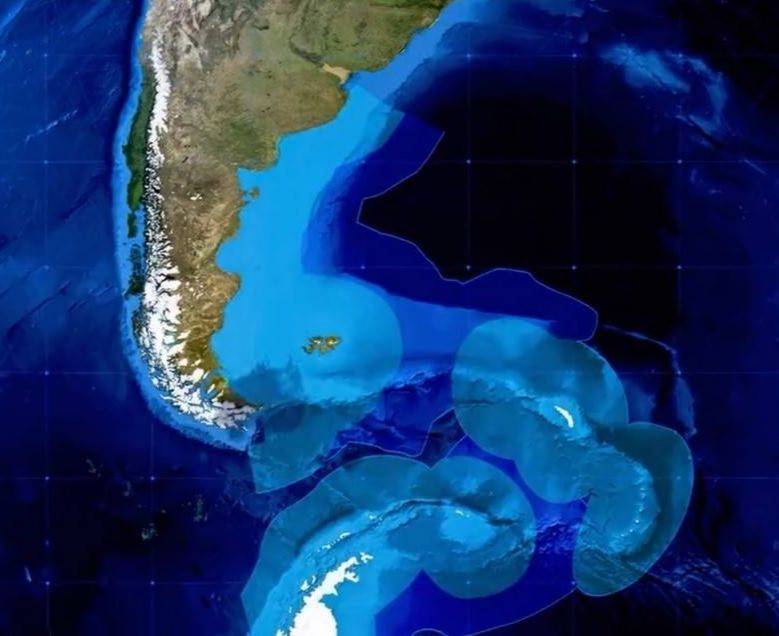Ernesto Dufour, catedrático por las universidades nacionales de Buenos Aires (UBA) y Lanús (UNLa), explicó en Agenda Malvinas por qué la soberanía es un concepto que debe ser abordado de forma integral, más allá del ámbito legal y normativo. “La soberanía también es la defensa existencial de nuestra comunidad”, sostuvo, “del derecho a ser dueños de nuestro destino. ¿Y qué significa para una nación perder eso? Sería quedar sujetos a las determinaciones de poder generadas en otras latitudes, sin posibilidad de opinar en lo que se decida”.
Para el profesor Dufour, las cuestiones de soberanía en Argentina son problemas no resueltos del pasado que persisten hasta el presente, con nuevas características y configuraciones, pero con los mismos esquemas de poder. “Si bien esto nos atraviesa como sujetos de derecho -comentó-, las discusiones en torno a la noción de soberanía no pueden quedar reducidas a la esfera diplomática o al marco normativo del derecho”. El investigador explicó que, además de las cuestiones materiales e intelectuales que se tratan habitualmente, el concepto de soberanía opera en una dimensión de sentimientos e identidades que cargan de sentido a las instituciones del Estado. “La soberanía va más allá del derecho y la diplomacia”, aseguró, “porque de ella depende que una comunidad nacional pueda seguir existiendo como tal”.

Según su análisis, el orden mundial se encuentra en una transfiguración que traerá grandes consecuencias a nivel local. “La cuestión de los recursos estratégicos -señaló-, se está analizando en un contexto cuya conflictividad alcanzó la dimensión bélica”. En la actualidad, la cuestión de los recursos es uno de los elementos centrales para las agendas de los Estados, ya que alimentos y recursos naturales utilizados como materiales o energía son los dos motores que explican el conflicto por el orden mundial. “Argentina -consideró-, como parte de América Latina, todavía dispone de esos recursos que las grandes potencias necesitan asegurar. Estos factores objetivos de la realidad nos permiten tomar una conciencia geopolítica más concreta”.
Para el profesor e investigador, la noción de soberanía debe comenzar a trabajarse de manera integral dentro de la sociedad, ya que limitar esta cuestión a los ámbitos específicos de la cancillería o las Fuerzas Armadas implica relegar la importancia que tiene el sentir nacional para la defensa del país en un momento crítico. “Sin ir más lejos”, puntualizó, “en los meses pasados la jefa del Comando Sur de los Estados Unidos, Laura Richardson, dijo sin ningún amague que les interesa nuestro litio y nuestra agua”.
El pueblo sabe
En el marco de la jornada “Luis Piedrabuena y la soberanía argentina”, organizada el pasado jueves por el Museo Ema Nozzi de Carmen de Patagones, el profesor Ernesto Dufour fue invitado a disertar acerca de la condición bicontinental de la República Argentina y sus implicancias. Al término de esta presentación, el geógrafo especializado en América Latina e integrante del Observatorio Malvinas de UNLa comentó en diálogo con Agenda Malvinas por qué la idea de soberanía debe estar anclada en la sociedad civil.
“Nuestra existencia siempre se da en el marco de una comunidad”, reflexionó, “porque la humanidad no es una sumatoria de individuos. Y si hablamos del sistema internacional, observamos que las comunidades son los estados nacionales”. El profesor explicó que para existir un país necesita defender el territorio, lo que implica tener en claro sus dimensiones y alcances. “Se trata de saber nosotros cuál es nuestra soberanía”, precisó, “para que lo sepan también los demás. Así es como se expresa en los hechos un Estado soberano; esto es Argentina, acá empieza y acá termina, y a través de este territorio somos una comunidad nacional”.
Dufour consideró que estas ideas están asentadas en los entornos tradicionales del derecho internacional o la Defensa, pero que permanecen menos definidas en campos de gran relevancia como el discurso ambiental. Ceder en este aspecto, para cualquier país, significa debilitar sus propios intereses. Además, señaló que la vigencia plena de la causa Malvinas en el pueblo argentino habla de una percepción general de estos intereses amenazantes. “El pueblo sabe que en Malvinas está la parte visible de un sistema de violencia invisible”, afirmó, “que es el colonialismo. Y se está dando un relanzamiento de la causa Malvinas como estrategia para la autoafirmación de lo propio, ante un contexto de mucha volatilidad”.
Para concluir, el docente e investigador criticó a quienes insisten en pensar las cuestiones nacionales de manera ingenua. “La historia de nuestra soberanía no es un constructo del pasado, anecdótico y eterno”, subrayó; “En todo caso, cualquier estado nacional necesita reproducirse en términos históricos, con una constante reapropiación no del Estado en tanto institución sino del sentido de nacionalidad, en función del contexto que esa comunidad esté atravesando”.


